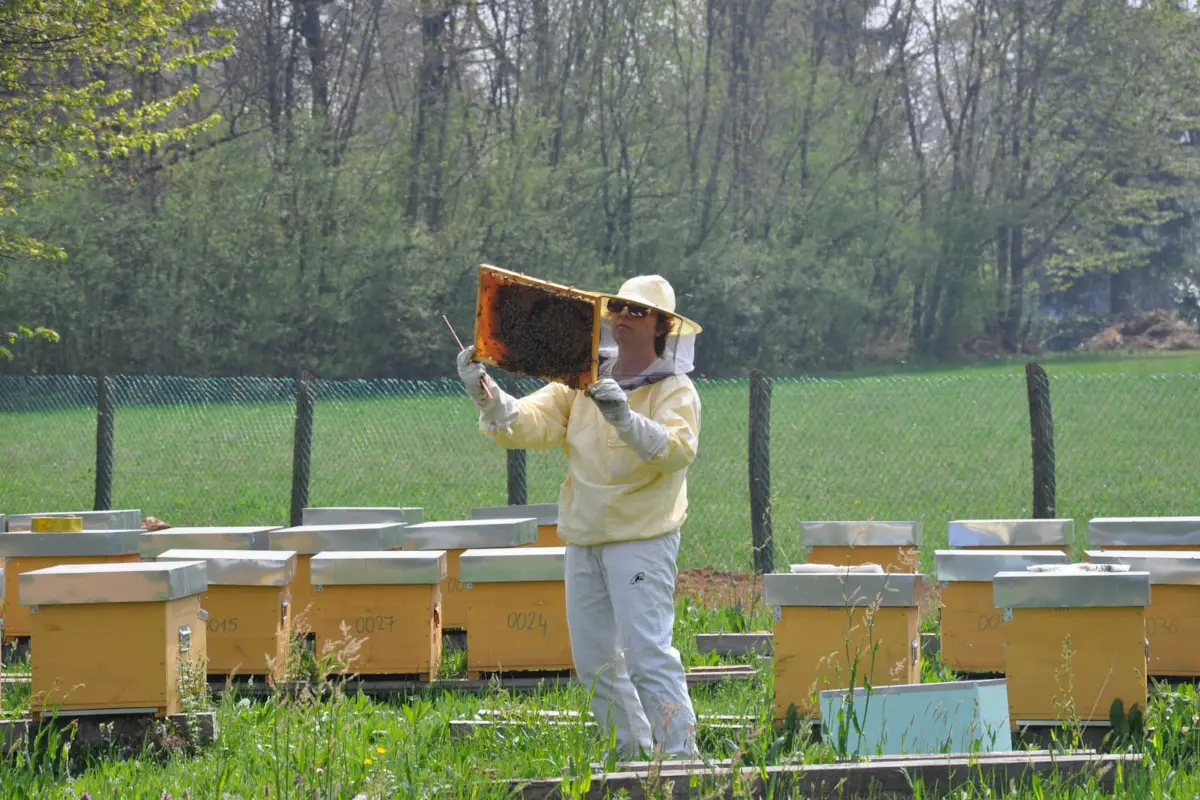
Copa Cogeca, red alert for European beekeeping
EU agricultural organisation calls for urgent action before the activity becomes "little more than a hobby"

If left untouched, beekeeping could become little more than a hobby in Europe. The Copa Cogeca strongly supports this, and gives its opinion in a statement to Yvan Hennion, beekeeper and chairman of the Miele working group. "As a professional beekeeper in the north of France who manages 300 hives and 800 colonies, -explains Hennion- I am going through a difficult period, like many other beekeepers across Europe. The European honey market has been in crisis for several years and the challenges we face are reaching a critical point. A combination of factors, such as the influx of low-cost imports, a market flooded with adulterated honey, the impact of climate change, invasive species and pests have brought the bee industry to its knees, threatening our livelihoods".
"Given the lack of effective legal instruments to support us in times of exceptional crises -underlining the Hennion note-, it is time for Member States to step up and create national support measures to protect beekeepers and ensure the longevity and sustainability of the honey sector. We are encouraged that the Hungarian Presidency has put beekeeping on the agenda of the next CFS meeting in November. Member States must now seize this opportunity, tackle the challenges we are facing and work to find lasting solutions that will guarantee a future for European beekeeping".
"My colleagues and I from the Copa-Cogeca -continues Hennion-, have always raised the alarm about the honey adulteration scandal and today I feel obliged to speak again because the situation has become catastrophic. In response to growing concerns about honey adulteration, the EU has begun taking important steps to address the problem, following requests from my colleagues and myself. The strengthening of border controls and the revision of the honey directive were significant steps to safeguard European beekeepers and promote a more fair and transparent market. However, we are still far from our proposed target of 0% adulteration by 2030".
For this reason, the beekeeper continues, "we have high expectations of the upcoming 'Honey Platform Expert Group', will look for effective ways to implement the much needed tools. We need a strong traceability system to better monitor the honey supply chain and detect fraud. In addition, we need a strong traceability system to The improvement of quality standards used to evaluate honey and the creation of a European reference laboratory to update and harmonise analytical methods and results are key steps forward".
However -adds Hennion in the press release- first of all it is essential that all member states apply the new country of origin labelling, with the mandatory indication on the front label of the jar of all countries of origin of honey with their exact percentage in the mixture, without any possible derogation to the extent that only the percentages of the four largest fractions are required when they represent more than 50% of the mixture. This transparency is crucial to regaining consumer confidence and safeguarding our industry.'
This is all the more important in light of the latest market data. "In the first half of 2024 -says the beekeeper- the average price of honey imported into the EU was only 2.17 Euros per kilo, a decrease of 14% compared to the previous year. Chinese and Ukrainian honey account for over 70% of these imports, with an incredibly low price of 1.28 Euro/kg and 1.75 Euro/kg respectively. Meanwhile, producing one kilogram of honey costs 3 to 4 Euro. With this huge price gap that makes it impossible for us to compete, it is no surprise that our honey is accumulating in warehouses, unsold".
"We keep wondering -says Hennion- how it is possible to sell honey at such a low price while still being profitable. In some countries, especially those most exposed to international trade, beekeepers are forced to lower prices just to stay in the game. Many are struggling to reach a tie and the situation is particularly serious for commercial beekeepers".
"If we are forced out of the market -the beekeeper comments- the consequences for honey production, pollination services and local economies could be devastating. Without urgent support, European beekeepers will not be able to survive in this increasingly hostile market. If left untouched, beekeeping could become little more than a hobby and Europe risks losing its role as a key honey producer, becoming just a processing centre for imported honey".
EFA News - European Food Agency